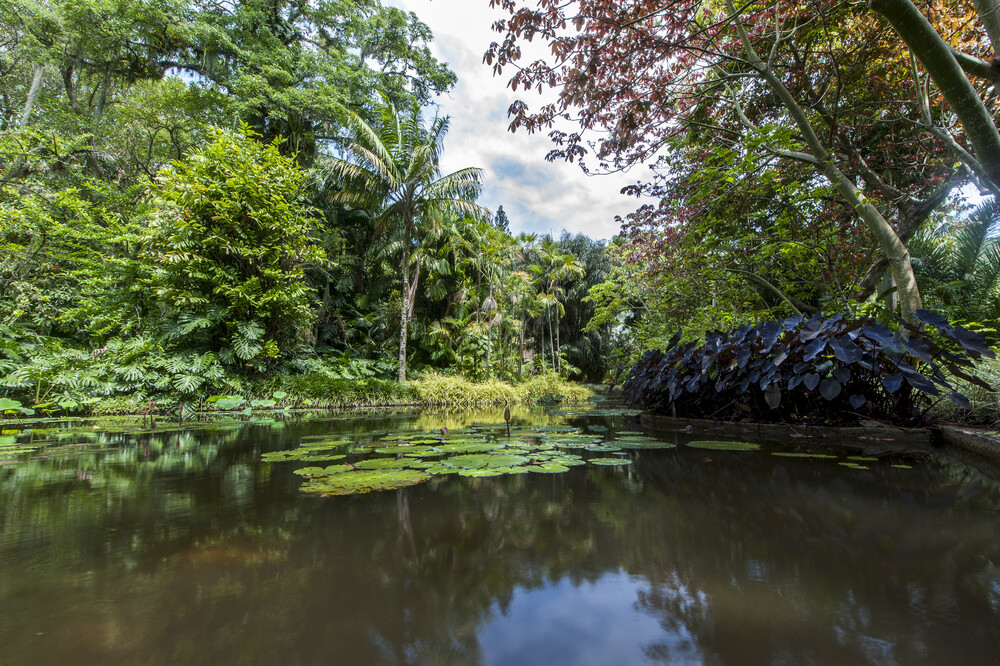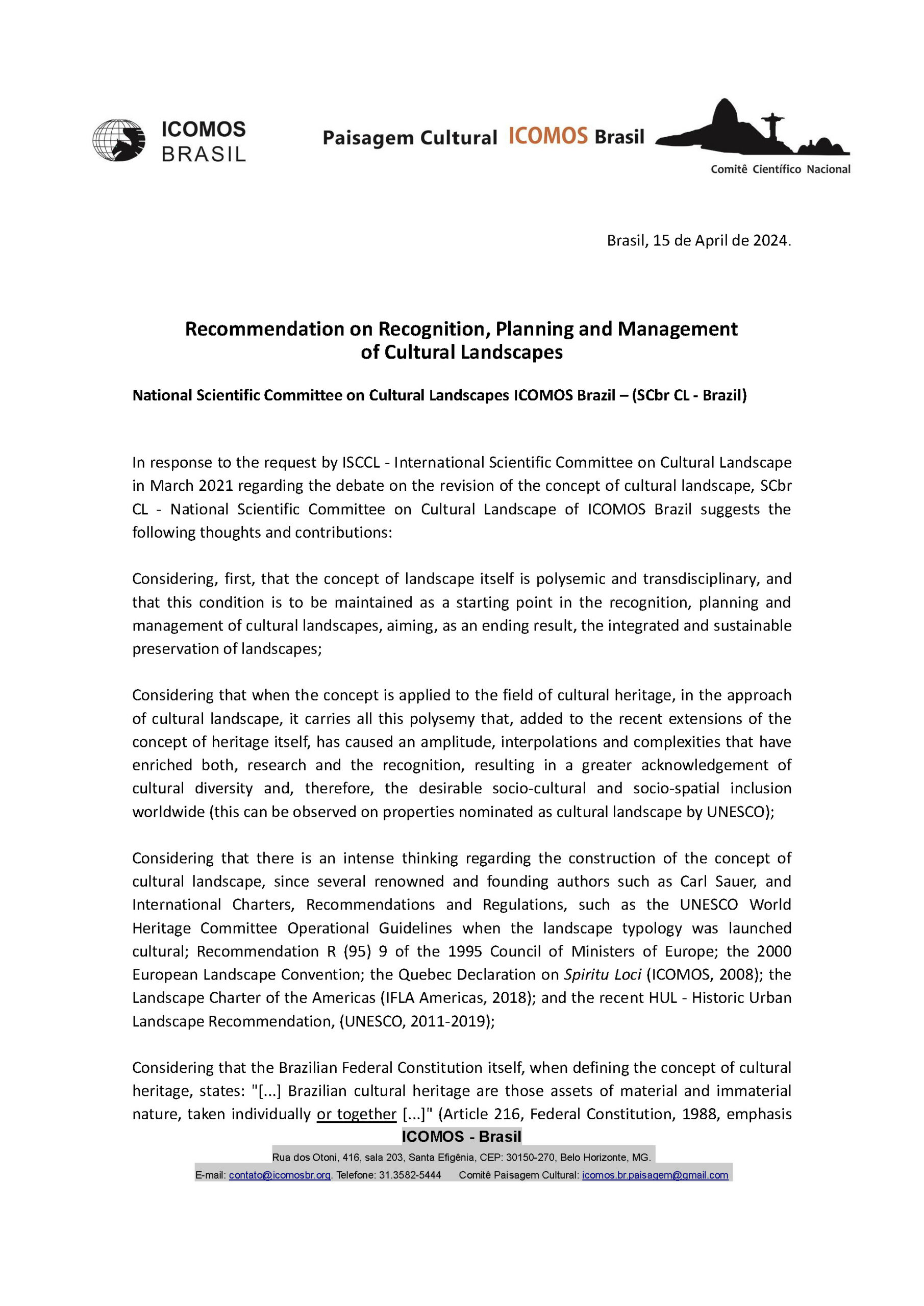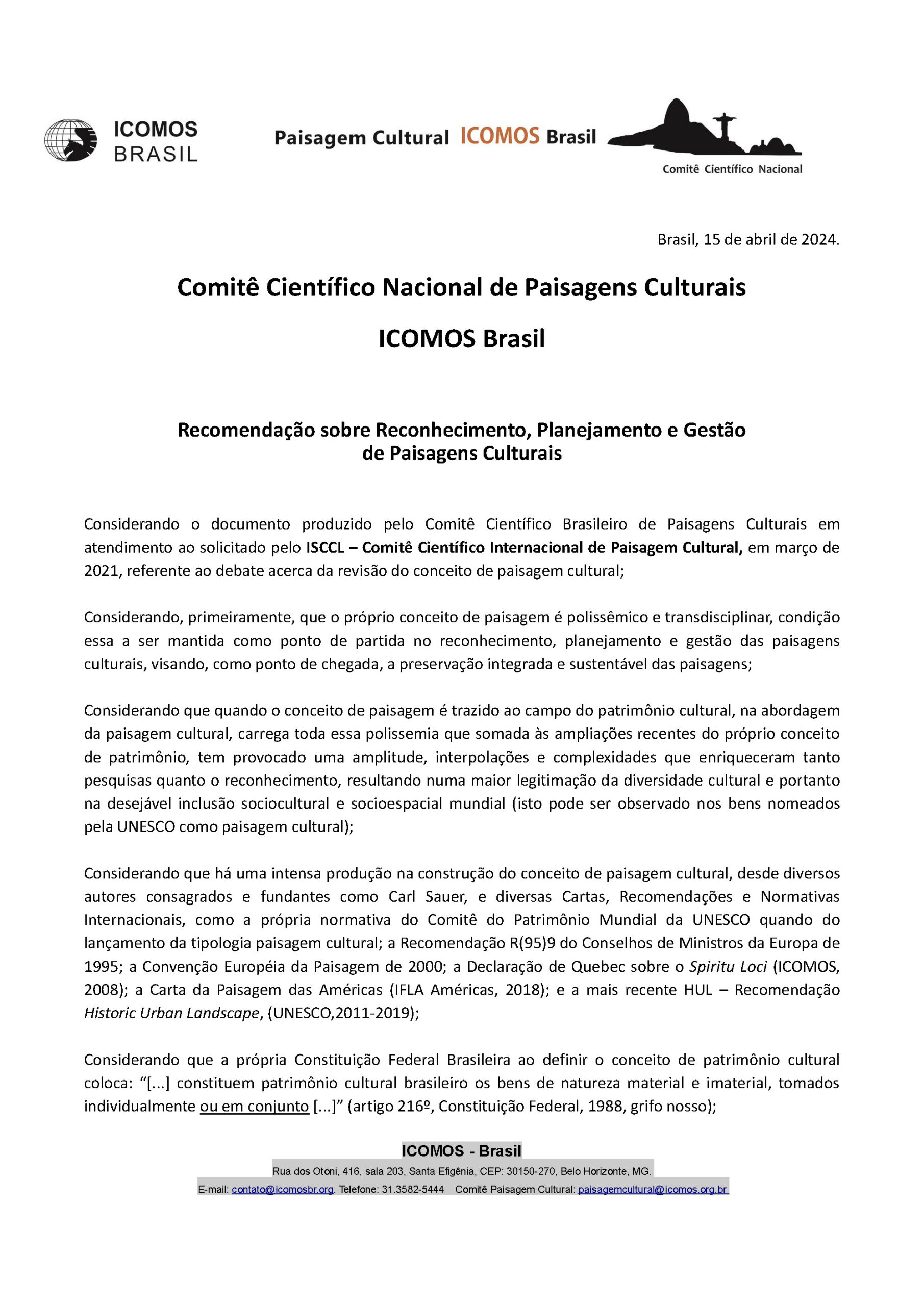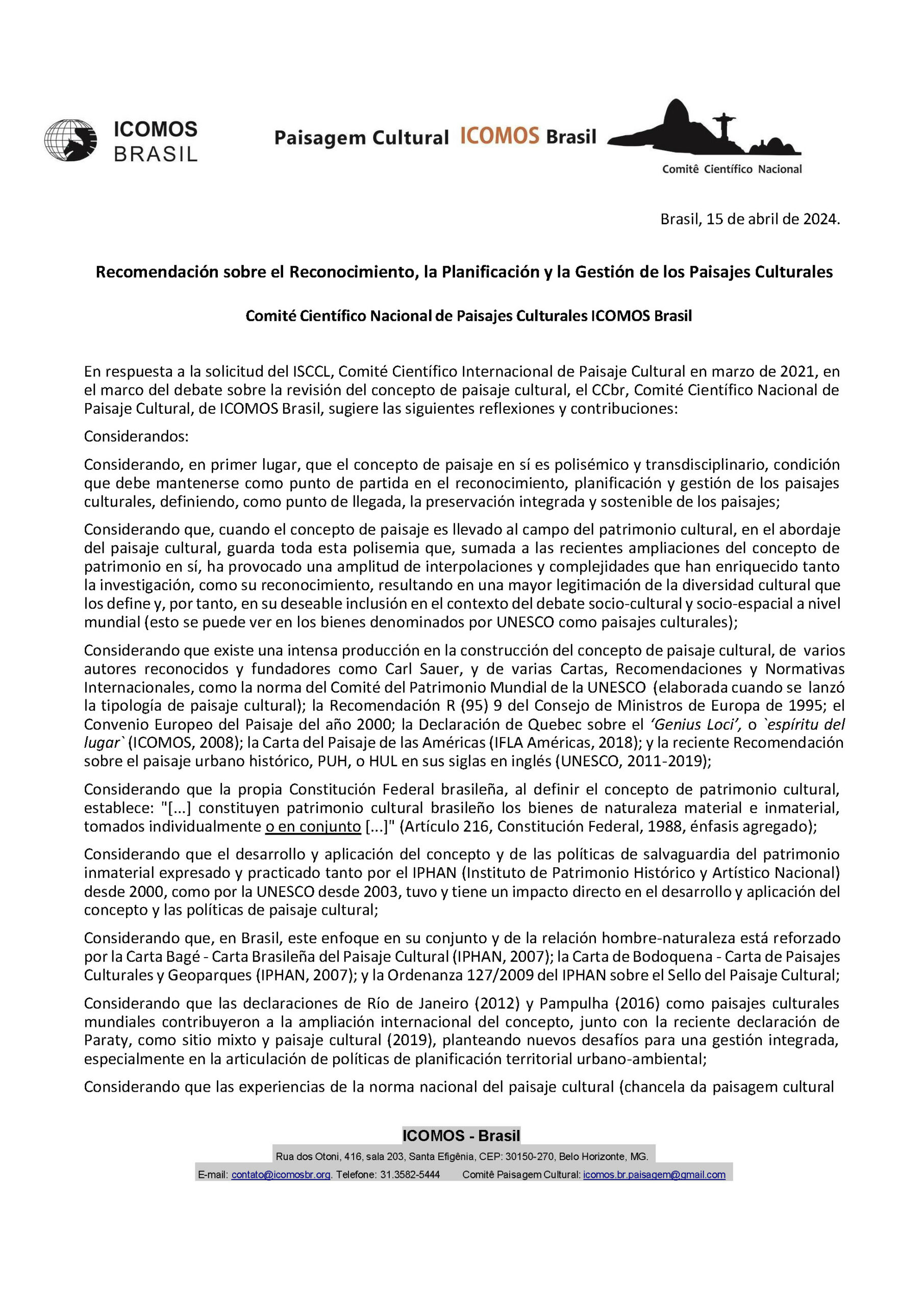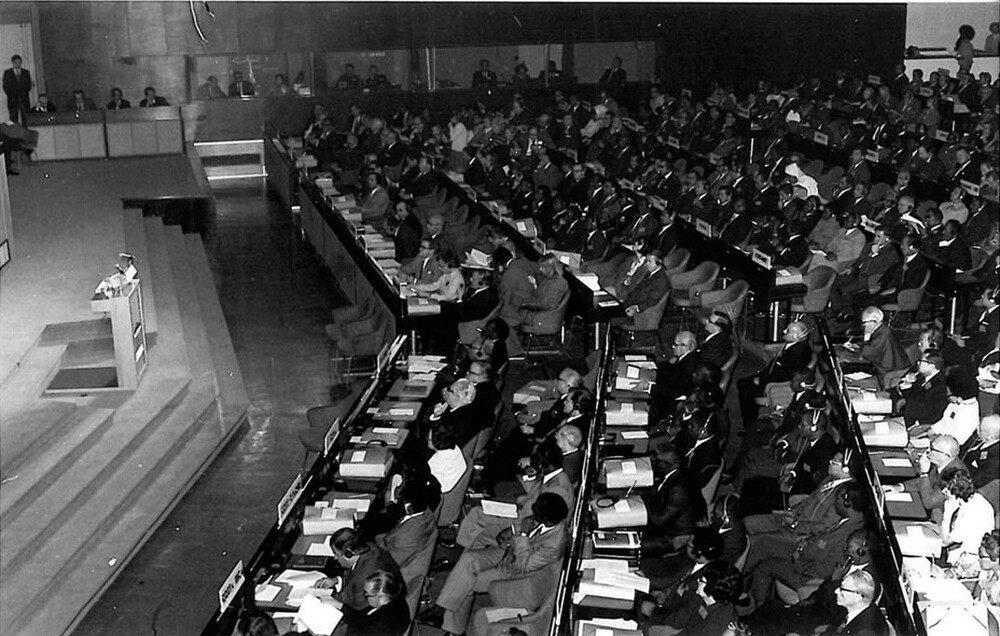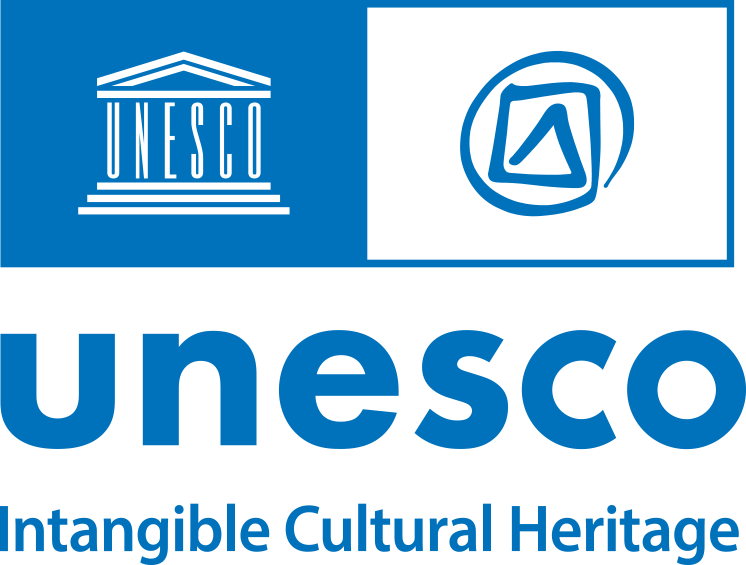Brazil publishes Cultural Landscape Policy Document
The ICOMOS National Committee of Brazil has drafted and adopted a “Cultural Landscape Recommendation on the Recognition, Planning and Management of Cultural Landscapes.” This document was motivated by the request of the ISCCL in 2021 – International Scientific Committee on Cultural Landscapes – to the national committees, to contribute to the revision of the concept of cultural landscape.
The notion of cultural landscape reaches the field of heritage carrying the polysemy and transdisciplinarity in the concept of landscape and, therefore, has provoked a series of interpolations and complexities about the term. This has required the approximation of the still fragmented approaches to cultural and natural, tangible and intangible heritages and the territory, which brings immense challenges to recognition and management.
Despite the accumulation of more than 30 years of UNESCO recognizing cultural landscapes around the world, the recognition, management and protection of cultural landscapes has proven to be counter-hegemonic in many countries, especially in Brazil.
Although the Brazilian Federal Constitution makes room for a comprehensive and integrated approach to cultural heritage, its practice and institutionalization is still in its infancy. Currently there are six sites recognized as UNESCO World Heritage Cultural Landscapes in Brazil – Rio de Janeiro, Pampulha, Paraty, Burle Marx Landscape Site, Bom Jesus Sanctuary in Congonhas and Jesuit-Guarani Missions.
Therefore, this Statement of Recommendation of the National Scientific Committee on Cultural Landscapes of ICOMOS Brazil, is based on the reconstitution and improvement of 11 principles to guide the concept and its application:
- EPISTEMOLOGICAL ADVANCEMENT;
- HUMAN INTERACTION;
- TERRITORIES AND TERRITORIAL SYSTEMS;
- SUSTAINABLE DEVELOPMENT;
- INTEGRAL AND INTEGRATED APPROACH;
- INTERCONNECTED MATERIAL, INTANGIBLE AND NATURAL DIMENSIONS;
- DIVERSITY OF OBJECTS AND THEMES;
- DYNAMISM;
- TRANSFORMATION IN FAVOR OF PRESERVATION;
- PUBLIC INTEREST;
- INTEGRATED, SHARED AND PARTICIPATIVE MANAGEMENT.
The Brazilian Committee invites everyone to know, reflect, debate and venture to apply the concept of cultural landscape in territorial planning and cultural preservation policies!

